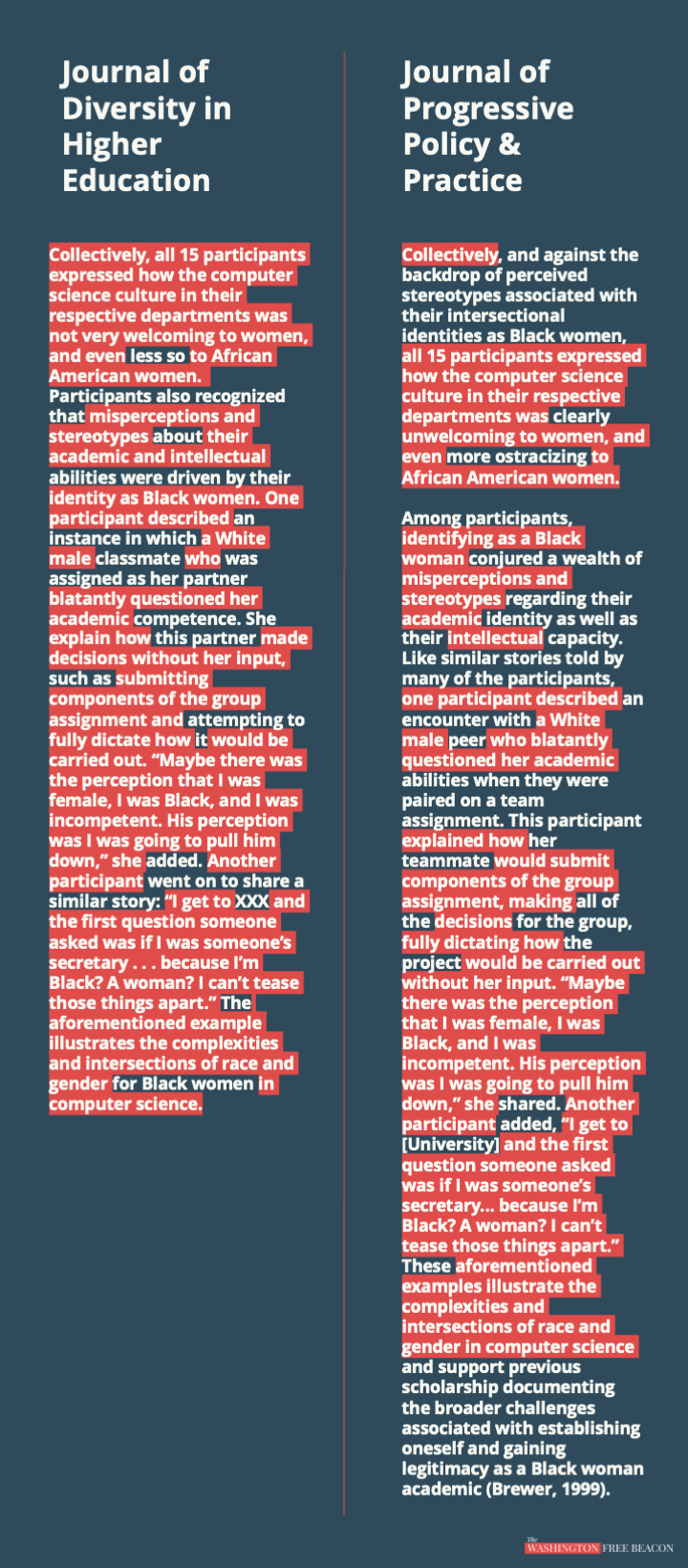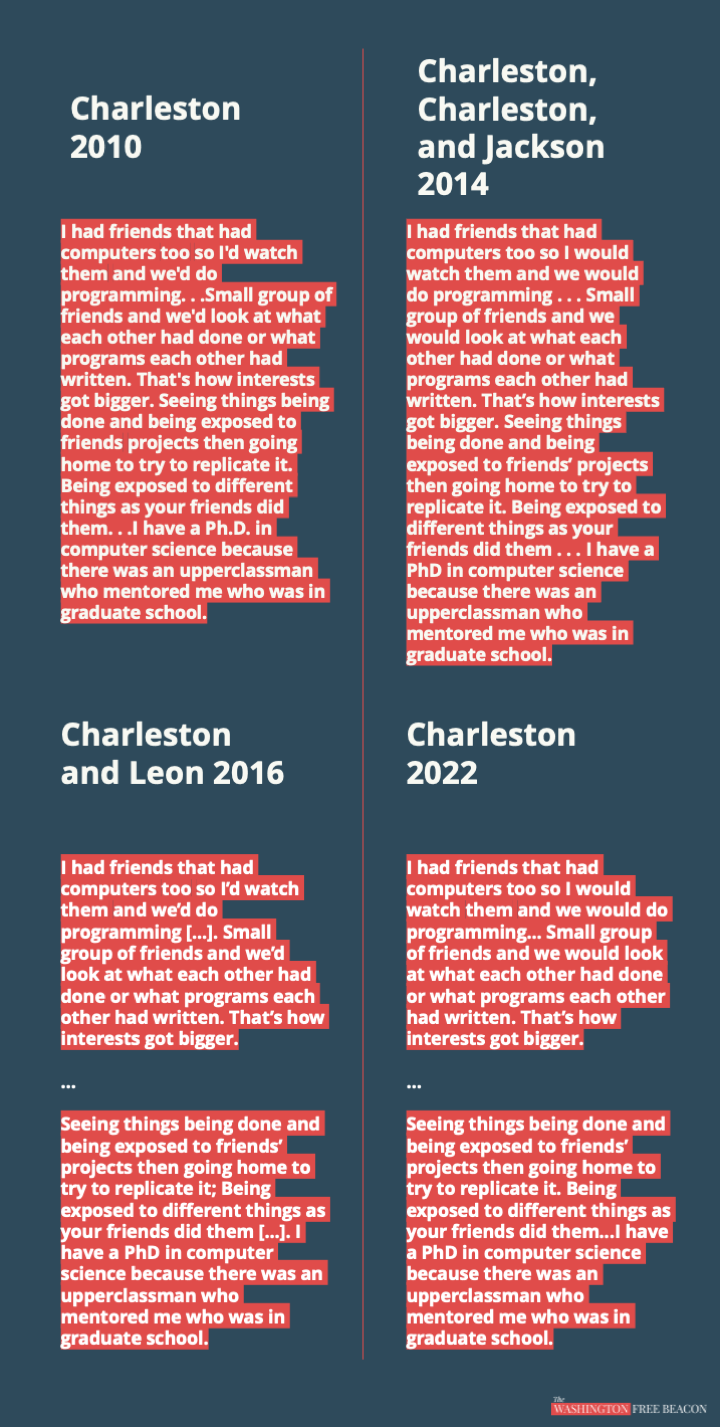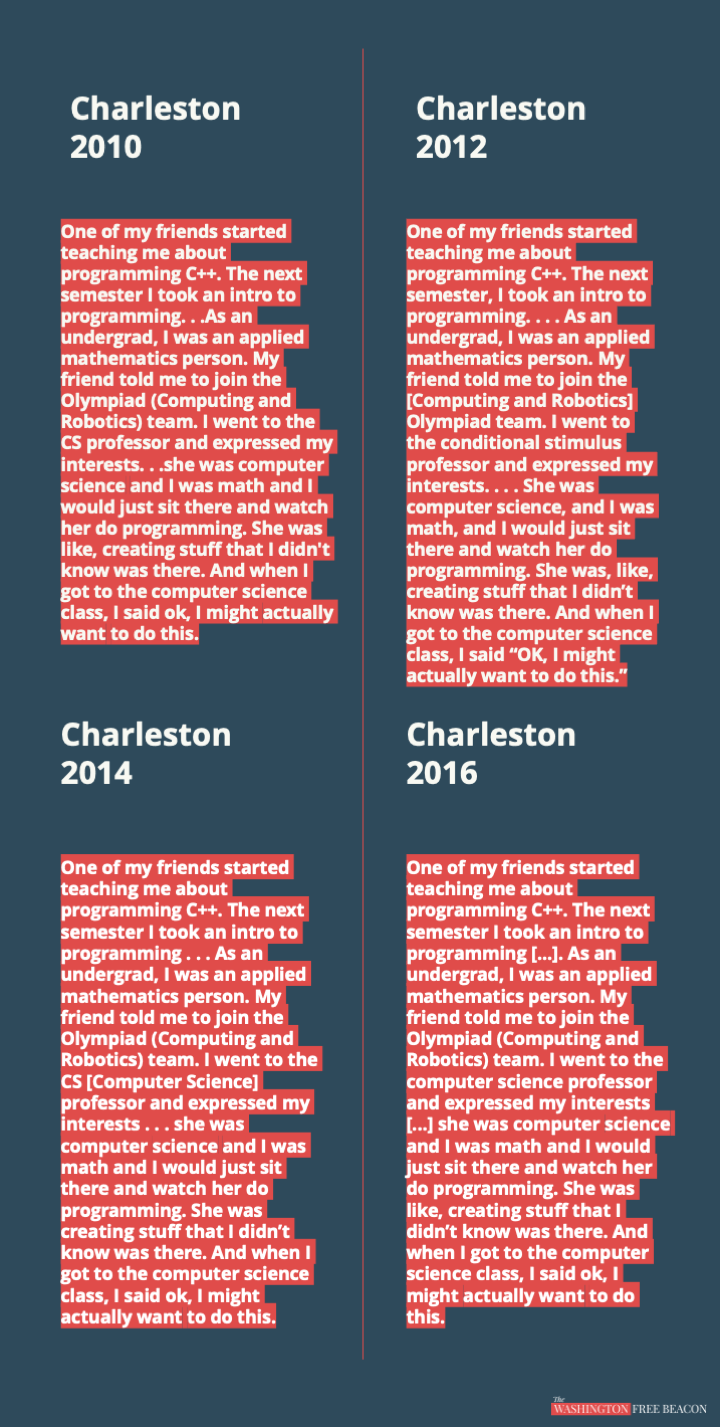The chief diversity officer of the University of Wisconsin-Madison, LaVar Charleston, who also teaches at the university’s school of education, has a decades-long track record of research misconduct, according to a complaint filed with the university on Wednesday and a Washington Free Beacon analysis. That misconduct includes presenting old studies as new research, which he has done at least five times over the course of his career.
The complaint, which was filed anonymously, implicates eight of Charleston’s publications, many of them coauthored, and accuses him of plagiarizing other scholars as well as duplicating his own work. It comes as the university is already investigating Charleston over a separate complaint filed in January, alleging that a 2014 study by him and his wife—Harvard University’s chief diversity officer, Sherri Ann Charleston—is a facsimile of a study he published in 2012.
“This is an extraordinary case of serial misrepresentation and deception,” said Peter Wood, the head of the National Association of Scholars and a former associate provost at Boston University. “The closest analogy would be someone who sells the same real estate to five different buyers, all of whom are unaware of the others.”
In January, Charleston won a lifetime achievement award for “excellence in higher education.” The university trumpeted the award in a press release, praising his “unwavering dedication to creating inclusive environments in academia” and noting his “wealth of academic accolades.”
Charleston’s CV, however, appears to have been inflated by duplicate publication, the practice of publishing the same research in multiple journals without attribution. In 2014, for example, he published a pair of papers in two separate journals—the Journal of Diversity in Higher Education and the Journal of Progressive Policy & Practice—that are near-verbatim copies of each other.

Both describe a 15-person focus group conducted by an African-American woman and feature identical quotes from participants, all of whom appear to have been recruited from the same academic conference.

Neither paper indicates the other was published elsewhere—a troubling omission, scholars who reviewed both studies said.
“It is academic misconduct to publish essentially the same paper twice with no acknowledgment of the duplication,” Alexander Riley, a sociologist at Bucknell University, told the Free Beacon. “It seems fairly clear that Charleston is gaming the system in order to get more on his CV than is merited by the amount of research he has actually done.”

Charleston also appears to have recycled findings and interview responses from his 2010 dissertation, which involved a survey of black computer science students, in four subsequent papers: the 2012 and 2014 studies that were the subject of the previous complaint, as well as two additional studies published in 2016 and 2022.

Each study is framed as a novel survey addressing a gap in the scholarly literature. None cite Charleston’s dissertation or indicate that they are drawing on previously published material.

The odds that different people would give the same quotes across different studies, said Lee Jussim, a professor of psychology at Rutgers University, are about the same as the odds that “monkeys typing on typewriters would reproduce Hamlet.”
Charleston did not respond to a request for comment.
The complaint raises serious questions about how a flagship public university vetted one of its top administrators, whose career has been marked not just by questionable research practices but by criminal conduct.
Shortly after joining UW-Madison as a researcher in 2009, Charleston was charged in 2011 with attempting to strangle a police officer, according to documents obtained by the MacIver Institute, a conservative think tank in Wisconsin. He avoided a conviction through the Deferred Prosecution Program, a local initiative run by the district attorney’s office that offers first-time felons the chance to do community service in lieu of jail time and removes their arrest records from public databases.
“Even with a PhD, I’m looked at as a criminal,” Charleston said in an interview in 2020. “[I]t has to be because of my color.”
The arrest didn’t stop Charleston from climbing the ranks of the school’s diversity bureaucracy. Between 2010 and 2017, he helped to build Wisconsin’s Equity and Inclusion Laboratory, which conducts research on “inclusive learning.” He became assistant vice chancellor of student diversity at the University of Wisconsin-Whitewater in 2017, then served as the inaugural dean of diversity, equity and inclusion at UW-Madison’s School of Education—the third-ranked education school in the country, according to US News and World Report. He became the chief diversity officer of the entire university in 2021.
Charleston is also a clinical professor of education, has led “anti-racism” workshops for Wisconsin public school teachers, and sits on the state’s Equity and Inclusion Council, which helps “advance diversity, equity, and inclusion practices across Wisconsin state government.”
The complaint calls into question the originality of the feted diversity scholar, who draws a $280,000 salary from UW-Madison and oversees tutoring services for students.
“The two 2014 papers do indeed appear to be two versions of the same paper,” Riley said. “I don’t see the two as distinct from one another in any substantive way.”

Both papers also share a prominent coauthor: Jerlando Jackson, now the dean of the Michigan State University College of Education, who advised Charleston’s dissertation at UW-Madison and also coauthored one of the studies based on it. The overlap raises additional questions about norms of academic integrity at education schools and within the field of DEI scholarship, which has come under intense scrutiny in recent months amid a drip-drip of plagiarism scandals.

“Either [Charleston and Jackson] are ignorant of this principle of research publication ethics,” Riley said, referring to rules against duplicate publication, “or they were both aware of what they were doing.”
Jackson did not respond to a request for comment.
The University of Wisconsin-Madison said it “takes all allegations of research misconduct seriously” and that it would investigate the complaint. Charleston, the school added, is a “valued member of the University of Wisconsin-Madison leadership team and we continue to support his work.”

Wednesday’s complaint marks the fourth time this year that a DEI official has been hit with charges of research misconduct. In addition to Sherri Ann Charleston, Harvard’s chief diversity officer, plagiarism allegations have been made against Shirley Green, the Title IX coordinator for Harvard Extension School, and Alade McKen, the chief diversity officer of Columbia Medical School. The deluge followed the downfall of former Harvard president Claudine Gay, who resigned in January after half of her published work was found to contain plagiarized material.
Unlike those other officials, who work for private universities with lavish endowments, Charleston is a government employee subject to a state budget. His role was on the chopping block last year after Wisconsin Republicans proposed a budget that would have cut $32 million from the UW system—the exact amount it spends on DEI initiatives.
A watered-down version of the proposal still drew fierce blowback from the University of Wisconsin Board of Regents, which in December rejected a deal to cap DEI staff in exchange for pay raises and a new engineering school. The board reversed course after news broke that it had prioritized positions like Charleston’s over $800 million in additional funding.
That money has subsidized a scholar who appears to have little new to say. The four studies based on Charleston’s dissertation, which was submitted to the University of Wisconsin-Madison, are strikingly similar to each other, regurgitating not just interview results but entire pages of text.
Each one discusses the challenges faced by African-American science students and argues, among other things, that mentorship can promote success in computer science. Three of the four studies include identical descriptions of survey participants, whose testimonials form the backbone for each paper.

“I know of no other cases where a researcher has simply repeated his dissertation findings like a broken record for twelve years,” Wood said.

While scholars can reuse data as much as they like and often turn their dissertations into peer-reviewed articles, they are expected to provide appropriate attribution to earlier research if it has already appeared in an academic journal. Failure to do so can result in retractions and infringe on the copyright of the publisher.
Duplicate publication is sometimes considered a more serious offense than plagiarism because, on top of stealing a journal’s intellectual property and padding a scholar’s CV, it biases meta-analyses—papers that aggregate the results of prior studies and use them to make statistical generalizations about a body of research. Some meta-analyses in education focus on the very issues Charleston’s work has addressed, including the effects of mentorship and diversity training.
Riley, the Bucknell sociologist, argued that the four studies didn’t quite meet the bar for “unethical behavior” because they were all based on a single dissertation, unlike the pair of papers from 2014. But, he added, the redundancies were revealing nonetheless.
“I gather that there are a lot of people doing this in the DEI universe—basically reiterating the same claims over and over and over again in different venues,” Riley said. “The field draws such people to it more or less naturally, given the orthodoxy on which it is based.”
The complaint also accuses Charleston of plagiarizing other scholars in his dissertation and some of his peer-reviewed papers, including the one from 2012. He lifts several passages from a Ph.D. thesis by Leslie Pendleton Graham, who earned her Ph.D. in counselor education in 1997, without citing her in a footnote or parentheses.

He also borrows from a dissertation by Craig Alan Green, who earned his Ph.D. from the University of Tennessee-Knoxville in 2008, without any sort of attribution.

The complaint points out that by recycling a plagiarism-laden thesis, Charleston ensured his subsequent work would contain plagiarism.
“Much of LaVar’s scholarly work since the dissertation lifts language from the dissertation verbatim,” the complaint reads. “But the dissertation is full of plagiarism. So LaVar’s peer-reviewed work has plagiarism throughout.”














